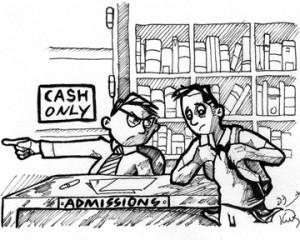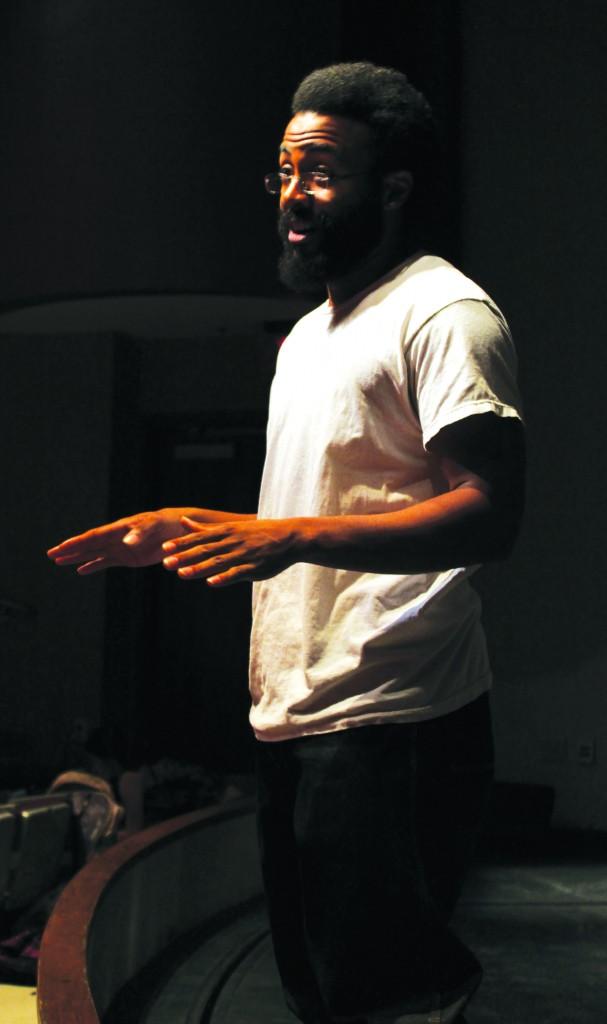A growing trend among universities puts students who aren’t financially well off behind the curve.
The 2011 Survey of College and University Admission Directors indicated revenue has become more important to colleges the past few years. Admission directors in public universities have recruited more students who don’t need financial aid and students from out of state who pay higher tuition.
This push has gotten to such a point that 25 percent of the directors admitted receiving pressure to admit a “full-pay” student despite a lack of qualifications. Ten percent admitted giving in to that pressure.
 Private universities are displaying symptoms of a financial crunch as well, with 20 percent admitting to using recruiters of foreign students paid on commission despite the fact that half of those directors said they believe these recruiters help students cheat to get into the school, thus increasing their wages. This is because, like out-of-state students at public colleges, foreign students tend to pay higher rates at private colleges.
Private universities are displaying symptoms of a financial crunch as well, with 20 percent admitting to using recruiters of foreign students paid on commission despite the fact that half of those directors said they believe these recruiters help students cheat to get into the school, thus increasing their wages. This is because, like out-of-state students at public colleges, foreign students tend to pay higher rates at private colleges.
This is bad. It’s not just because of a gap in ethics but also because of the implication for students who can’t pay. Public colleges, including some two-year schools, are putting students who can pay ahead of those more likely to make something of themselves.
With financial aid and student loans becoming more limited, low-income students are running out of options fast. At the going rate, colleges that once prized public access will become another cog in the “poor-stay-poor, rich-get-rich” machine.
The global economic crisis is the likely culprit, causing state funds to vanish and financial aid to dry up. Another factor could be the erratic stock market, which affects interest rates and could be messing up scholarships.
The reason doesn’t matter. The rich already have enough advantages in the business world. Once bright students start getting boxed out because of a lack of resources, we will regress as a nation.
Education is the key to income. In a system that emphasizes a student’s current resources, first-generation college students will become less common. The divide between the upper and lower classes will widen, and the middle ground will become smaller.
This cannot happen. Two-class societies don’t work. The American and French revolutions are examples. We are far from a true two-class society emerging, but even a step toward it is unacceptable.
TCC, universities of Texas, every public college in the U.S. — find a way to reverse this trend: cut whatever costs, raise whatever rates it takes. The U.S. was called the Land of Opportunity because of its vast amount of untapped resources. It remains so because anyone can get an education if they work hard enough.
This statement must remain true. Regression in this field would be catastrophic.




























